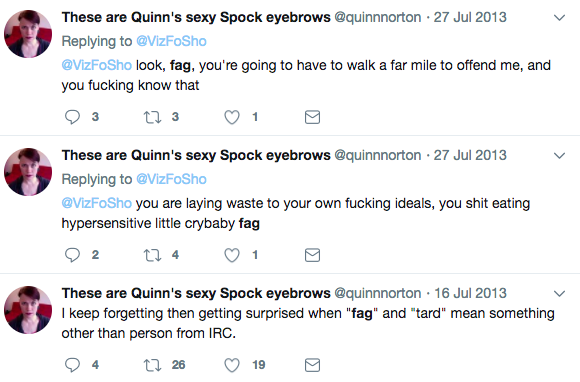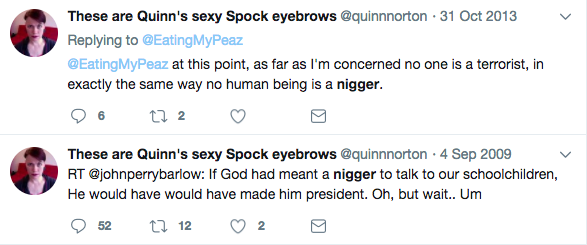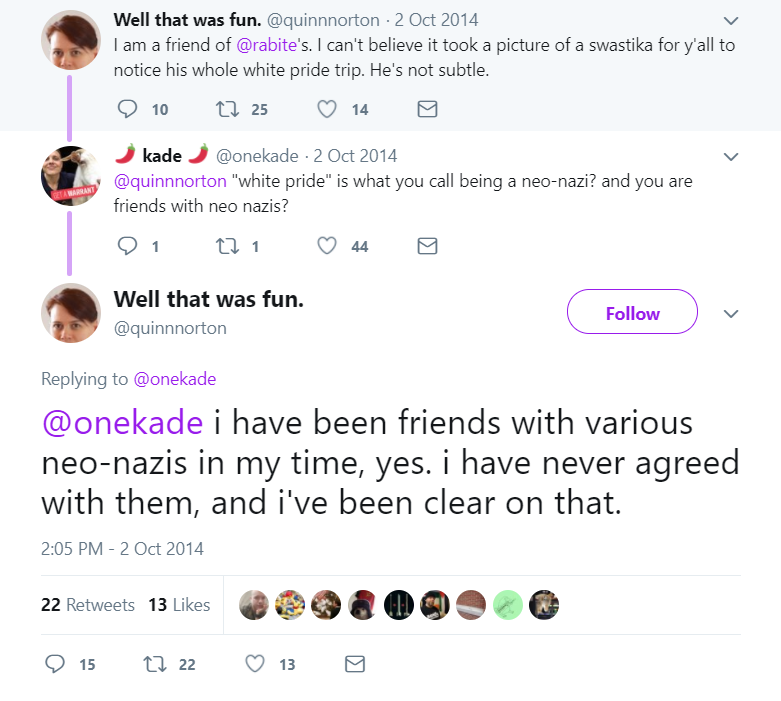Norton didn’t last long at the Times. | Photo: Wikimedia
On Tuesday (13 February), the New York Times hired self-described queer activist Quinn Norton to its editorial board. They hired her as the ‘lead opinion writer on the power, culture and consequences of technology’.
Hours later, they parted ways.
The decision came after numerous troubling comments made by Norton were unearthed.
In a statement, NY Times editorial page editor James Bennet said: ‘Despite our review of Quinn Norton’s work and our conversations with her previous employers, this was new information to us. Based on it, we’ve decided to go our separate ways.’
Norton, meanwhile, tweeted: ‘No harm no foul.’
As I said so many times to the @nytimes, no harm no foul. I’m sorry I can’t do the work I wanted to do with them. I wish there had been a way, but ultimately, they need to feel safe with how the net will react to their opinion writers.
— Well that was fun. (@quinnnorton) February 14, 2018
The ruinous receipts
Scrolling through Twitter, people began to point out various problematic comments made by Norton.
Many of them dealt with using language like ‘f*gs’ and ‘n***er’.

Screenshot of Norton’s tweets. | Photo: Twitter

Screenshot of Norton’s tweets. | Photo: Twitter
Then there came the matter of her apparent friendships with neo-Nazis.
More specifically, with Andrew Auernheimer aka Weev. With a swastika chest tattoo, Weev was a webmaster on the white supremacist site The Daily Stormer and also a hacker on 4chan.
Norton addressed her relationship with Weev. First, she openly declared herself a friend of Weev’s (his Twitter handle is @rabitea) and then said while she’s been friends with ‘various neo-nazis’, she has ‘never agreed with them’.

Screenshots of Norton discussing Weev. | Photo: Twitter
Damage control
Quickly after the split happened, Norton began defending her work and relationships.
First she addressed Weev:
Weev doesn’t talk to me much anymore, but we talk about the racism whenever he does. My door is open when he, or anyone, wants to talk, but we’re talking about the stupidity of racism and the people in my life know that to be true.
— Well that was fun. (@quinnnorton) February 14, 2018
Norton explained she doesn’t ‘support Weev’ but that she believes ‘white folks should engage with the racists in their life’.
She also said she’s been a queer activist since 1992 and defended her use of the word ‘f*g’.
I’ve been a queer activist since 1992. But when I speak to communities, I used their language to do it. I talked about the Anonymous usage of “fag” and “faggot” here: https://t.co/1hdDvcrBB6
— Well that was fun. (@quinnnorton) February 14, 2018
The New York Times, for their part, has also been drawing criticism. However, the criticism didn’t begin here.
In November, they defended — and admittedly regreted readers’ offense to — a feature they published on a Nazi sympathizer.
They also drew ire when they hired Bret Stephens, a climate change denier, as an op-ed columnist last year.







